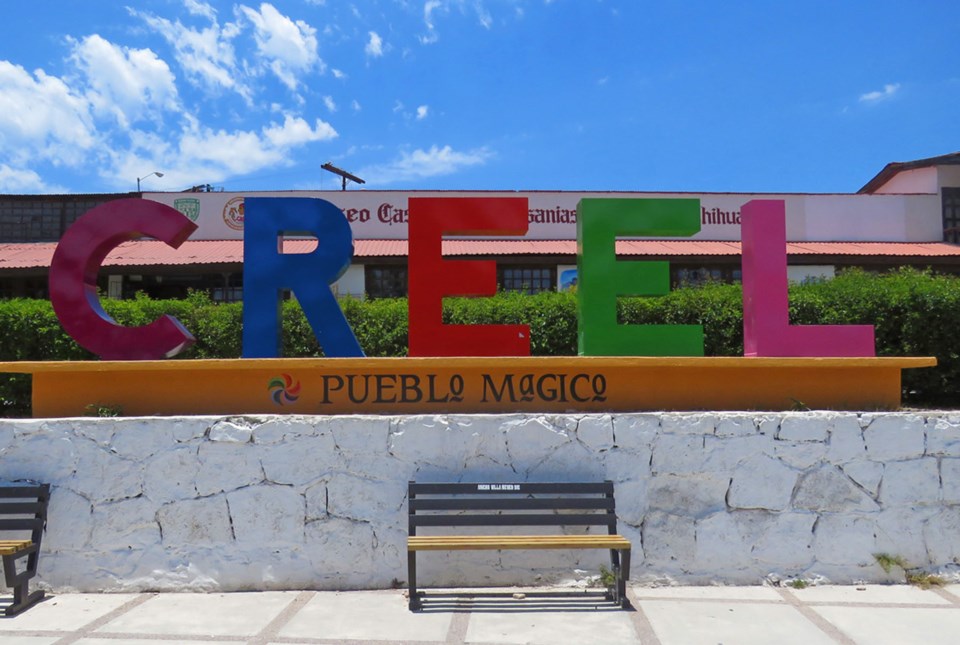In November of last year, I had the opportunity to travel to Mexico and visit a couple of their Pueblos Magicos or Magical Cities (Creel and Casa Grandes). Our tour guide explained what these towns were and a little about the Programa Pueblos Magicos. From what he told us, it seemed like a decent idea to increase tourism and local business opportunities. I began to wonder if we couldn’t do something like this back in Canada, or Ontario or even North Bay.
There are ‘magical’ cities and towns all over the world as I soon discovered using Google. Rome, Venice, and Florence are called Magical Cities. What, I wondered was different in Mexico? Certainly, these small towns could not compete with Rome or Florence in attracting tourists. However, there was much more than tourism involved in the idea used in Mexico. A definition of a Pueblos Magicos is a place with symbolism, legends, history, important dates and daily events that display its social and cultural traditions all brought together in the name of tourism and the economy.
The idea in Mexico was to finance and support towns near the popular seaside resorts to encourage people to visit places inside Mexico, spend some tourist dollars and perhaps learn a little more about the interior of the country and its history. This would encourage local craftsmen, restaurant owners, eco tourism sites, and festival entrepreneurs. It sounded like Summer in the Park on a year-around basis. However, upon reading the objectives and criteria for the Programa Pueblos Magicos I realized we had some problematic blanks. Like no Mayan buildings or even old Spanish structures to show off. Our historical figures are not well known: we have no Pancho Villa or Zorro.
Then by happenstance I read several articles about Estonia and wondered if there wasn’t an opportunity for a different kind of Magico City. While Mexico was building on its past history, Estonia is building for the future with its computerization and digital wizardry that some might find magical. Without going into details, what they are doing in Estonia would boggle the minds of those people in Ottawa who are struggling to get the Phoenix payroll system operational. For your own edification, Google Estonia and their computer systems - an article in the New Yorker is a good jumping-off point.
What I began to think was maybe we need a combination of the Mexican plan and the Estonian experiment in computerization. While I think the Mexicans might have created too many Magico towns, I think we could start with three magical towns in Ontario. My thoughts are that we could customize and implement many of the programs Estonia is using (no need to reinvent the wheel) in three smaller cities as incubator cities. Once we have the programs running successfully, we scale them upwards to larger towns and eventually to Toronto. (I know this is contrary to the usual pattern of building something in Toronto and expecting it to fit in North Bay, but what the heck.)
I think the incubator cities should be of a size where the Estonian programs would work without too much challenge for a limited number of (willing) residents - say a population of about 50,000. Trying to implement a new system in Toronto with its diverse population of 3 million could be a struggle until any of the Phoenix-type bugs were fixed. We need 3 cities that have some diversity in the Ontario economic, cultural, health and education fields. I would choose North Bay for its northern contacts with forestry and mining, university, and connections with the First Nations culture - maybe even transportation (rail, air, and road). Woodstock might work with its association with farming and being home to an auto manufacturer, while Cornwall could add a border crossing, a Supply Chain Management centre and a lot of early Canadian history to the mix. All three magical centers would work in coordination, of course, concentrating their knowledge and experiences until the shared programs were ready to upscale.
The Magic workers, okay call them Wizards, would use clouds, computer farms, block chains and anything new that comes along in the daily melee of the digital world. They should be happy to live in any of these three small cities (with visits to the Big Smoke to collect funds and political direction). They would create programs to enhance local tourism, ecotourism, computer gaming and sports all within the Estonian ideal of secure personal information that links to damn near everything.
The three Magical Cities would require provincial funding but the payback in reduced data duplication and file sharing (see Estonia and Mexico) should encourage the politicians to fund this non-partisan venture. The municipal leaders might want to invest in this as well since their cities will be the first to reap rewards in increased tourism, application entrepreneurs, and nerd employment, not to mention better access for citizens to their own personal data (health, property, banking, education, etc.)
Europeans are quickly seeing the advantages of the Estonian system. It seems inevitable that the computerization of everything is upon us. Maybe we should hitch our star to a Magical City before we are left in the dust of history. It is just an idea.



